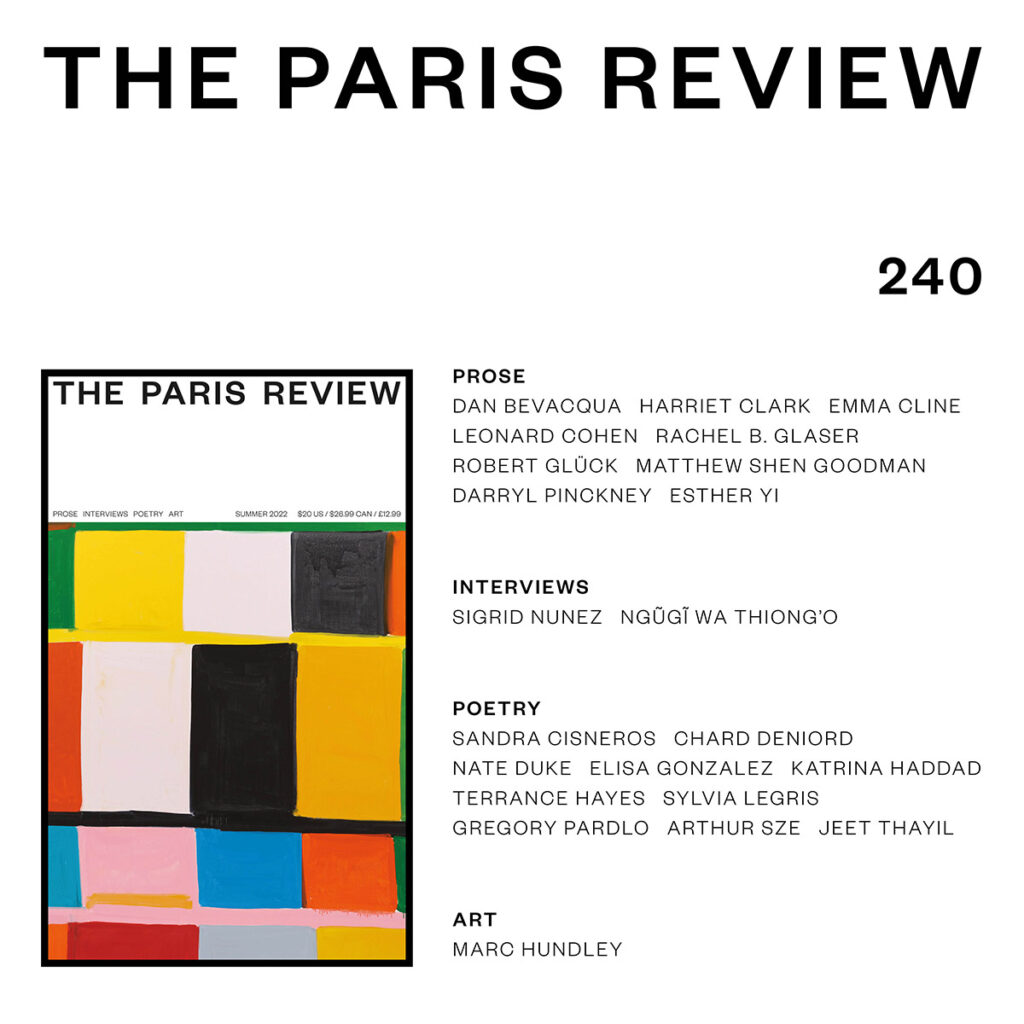Announcing Our Summer Issue
“In more than one language the words for love and suffering are the same,” observes the narrator of Sigrid Nunez’s debut novel, A Feather on the Breath of God. “I have hurled myself at men’s hearts like a javelin.” But Nunez herself, whose Art of Fiction interview appears in our new Summer issue, has no interest in effortful seduction. Speaking to the Review’s Lidija Haas in early May, she expressed impatience with writers who want to break their readers’ hearts: “There’s an arrogance to that that has always bothered me. You leave my heart alone!”
Writing that beguiles and devastates often appears to do so casually, with the smallest of phrases or gestures, and those moments were what caught at us as we put this issue together: a little girl, in a debut work of fiction by Harriet Clark, patted down by her grandfather with a tailor’s respectful discretion on their Saturday visits to her mother in prison; a phone call from a former lover, his voice as jarringly familiar as “the feeling of my tongue inside my mouth,” in Robert Glück’s “About Ed”; that gentle “mm-kay” in a poem by Terrance Hayes written in the voice of Bob Ross.
Although the Review has generally resisted the lure of the themed issue—the main criterion for what we publish is that it leave us in some way altered—just occasionally, as if from the unconscious, the hint of a theme emerges. This time, as press day approached, we noticed that several of the pieces we’d chosen conjured the experience of an intense crush—the kind that takes you over with a fierce possessiveness, while its object remains oblivious. The fastidious, measured narrator of Esther Yi’s “Moon,” attending the concert of a K-pop band whose fans she’s always looked down on, finds herself instantly undone. In a portfolio made especially for the Review, the artist Marc Hundley captures the vertiginous sensations of reading alone, falling under the spell of certain lines from our own archives. And, in a short essay, Darryl Pinckney describes the night when he was alone in an upstairs bedroom as a child in Indianapolis and the film Paris Blues “switched on a certain channel of my being.” What channel, exactly? As Rilke would no doubt have written had he seen the movie: Paul Newman must change your life.
Copyright
© The Paris Review

